Composers of Color You Should Know
September 2, 2020
When we began putting together the schedule for our 2020-2021 Virtual Concert Season, Gilmore Director Pierre van der Westhuizen asked each artist on the Virtual Rising Stars series to present at least one work composed by a person of color. “There is a vast repertoire by persons of color and women that has been historically overlooked,” he said. “It’s way past time to give these artists the recognition they are due. I hope our listeners enjoy these works and we encourage them to explore further.”
In preparation for these performances, we’d like to share with you brief histories on each of the composers chosen by our artists.
Special thanks to Georgie Booker for her research and assistance in helping the Rising Stars make their selections.
Florence Price (1887 – 1953)
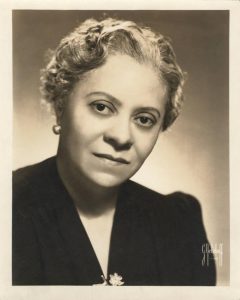
Photo courtesy of G. Nelidoff, Special Collections of the University of Arkansas Libraries
Born in Little Rock, Arkansas to a dentist father and music teacher mother, Price had her first piano performance at the age of only four and her first composition was published at the age of 11. She graduated from the New England Conservatory of Music in Boston, Massachusetts in 1906 with degrees in piano and organ. She taught in Little Rock and Atlanta, Georgia before moving to Chicago in 1927 where Price continued studying composition, orchestration, and organ and started composing extensively. She became friends with fellow composer Margaret Bonds, who connected her to writer Langston Hughes and contralto Marian Anderson. After submitting her Symphony in E Minor to the Wanamaker Foundation and winning first prize, Price became the first African-American female composer to have a piece performed by a major orchestra (in her case, the Chicago Symphony Orchestra). She often used traditionally African-American melodies and rhythms in her pieces, composing chamber works, organ anthems, piano pieces, symphonies, piano concertos, and even a violin concerto. Following her death, much of her work was thought to be lost until its discovery in a run-down house in St. Anne, Illinois in 2009.
You can hear Mackenzie Melemed’s performance of Price’s Meditation from September 20, 2020 here.
Unsuk Chin (b. 1961)

Photo courtesy of Boosey & Hawkes
Born in Seoul, South Korea, Chin taught herself how to play the piano. After winning a prize from the Gaudeamus Foundation for her piece “Spektra for three celli” in 1985, she received an academic grant to study in Germany. Since the debut of her first large orchestral piece, Troerinnen, by the Bergen Philharmonic Orchestra in 1990, Chin’s work has been performed in over 20 countries in Europe, Asia and North America. Chin draws inspiration for her pieces from a variety of sources including composers such as Claude Debussy, Igor Stravinsky, and György Ligeti, poetry by Inger Christensen, Harry Mathews, Gerhard Rühm and Unica Zürn, books such as Alice in Wonderland, and art by Olafur Elíasson.
You can hear Chaeyoung Park’s performance of Chin’s Etude No. 5, “Toccata” from October 18, 2020 here.
H. Leslie Adams (b. 1932)
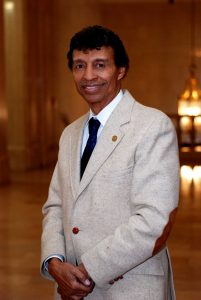
Photo by Michael Dalby
Born in Cleveland, Ohio, Adams studied music education at Oberlin College, receiving his Bachelor’s from there before going on to receive his Master of Music from California State University, Long Beach, and PH.D in Music from Ohio State University. His musical drama, Blake, composed in 1986, is loosely based on the novel of the same name by Martin Delaney and utilizes many elements of African-American music such as melodies frequently used in spirituals, syncopated rhythms, and improvisation. His orchestral works have been performed by the Prague Radio Symphony, Iceland Symphony, Buffalo Philharmonic, and Cleveland Orchestra. In 2015, he received the Cleveland Arts Prize Lifetime Achievement Award for his outstanding work.
You can hear Dominic Cheli’s performance of Adams’ Etude No. 2 in A-flat Minor from Piano Etudes, Book 2 from November 29, 2020 here.
Isaiah J. Thompson
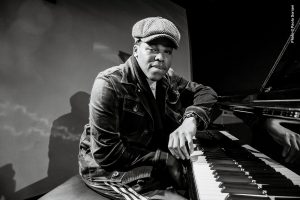
Photo by Paolo Soriani
Born in West Orange, New Jersey, Rising Star Isaiah J. Thompson is not just a jazz pianist, but also a composer. He began his studies at the The Calderone School of Music before attending Jazz House Kids and NJPAC Jazz for Teens. He received his Bachelor’s of Arts in Music as well as his Master’s of Arts in Music from The Juilliard School. Thompson recently released his album, Isaiah J. Thompson plays the Music of Buddy Montgomery and has performed with Jazz at Lincoln Center with Wynton Marsalis.
You can hear Thompson’s compositions during his Rising Star performance from February 7, 2021 – coming soon to our Youtube page.
George Walker (1922 – 2018)
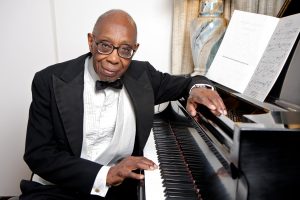
Photo by Frank Schramm
Born in Washington D.C., Walker began piano lessons when he was only five years old and graduated from Oberlin College at the age of 18. From then on, he worked as a concert pianist, teacher, and composer. After touring in seven countries in Europe in 1950, he returned to the United States and became the first Black recipient of a doctoral degree from the University of Rochester’s Eastman School of Music. He served as faculty at Smith College (1961-1968), the University of Colorado Boulder (1968-1969), and Rutgers University (1969-1992), as well as giving master classes at many colleges throughout the United States. He has composed pieces for orchestra, chamber orchestra, piano, voice, and chorus and his piece Lyric for Strings is one of the most frequently performed orchestral works by an American composer. He passed away in 2018 at the age of 96 in Montclair, New Jersey after composing over 90 pieces.
You can hear Walker’s Piano Sonata No. 5 from Evren Ozel’s performance on March 14, 2021 at 4 PM ET here.
Robert Nathaniel Dett (1882 – 1943)
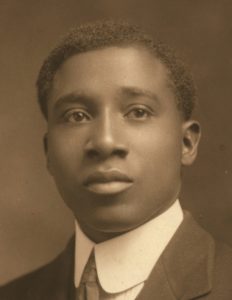
Born in Ontario, Canada, Dett began showing an interest in the piano at the age of three. When he was 11, Dett’s family moved to Niagara Falls, New York and he began playing for his local church. After beginning his piano studies at the Oberlin Conservatory of Music and hearing the work of Antonín Dvořák for the first time, Dett became inspired to include spirituals he had learned from his grandmother in his compositions. Following his graduation from Oberlin, Dett began teaching and served as the first Black director of music at the Hampton Institute in Virginia (1913-1932). From 1924 to 1926, he also served as the president of the National Association of Negro Musicians. His compositional work mostly includes pieces for the piano, voice, and choruses. Dett passed away while traveling with the USO as a choral advisor in 1943 in Battle Creek, Michigan.
You can hear Dett’s Magnolias, from the Magnolia Suite during Avery Gagliano’s performance on May 16, 2021 at 4 PM ET.
The pieces by composer of color selected by Glenn Zaleski Trio will be announced during their performance on May 2.
